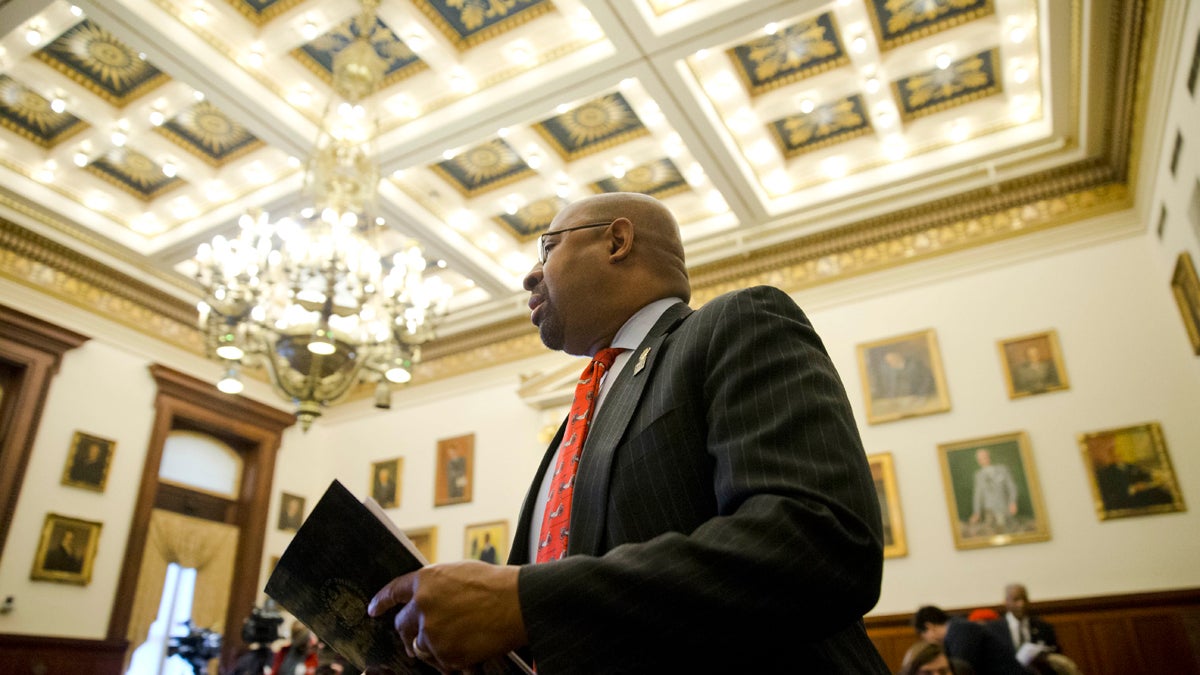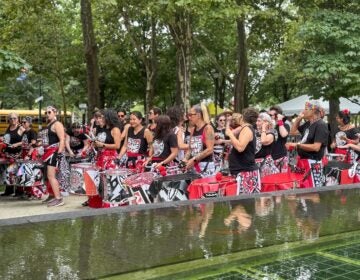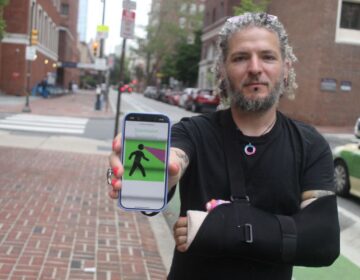Citizens’ board created to push improvement of Philadelphia policing

Philadelphia Mayor Michael Nutter arrives for a news conference Wednesday, March 25, 2015, at City Hall in Philadelphia. Nutter has created an independent oversight board to monitor the implementation of recommendations from a Justice Department team that studied the city's nearly 400 officer-involved shootings in the last eight years. (Matt Rourke/AP Photo)
Two days ago, the U.S. Justice Department delivered Mayor Michael Nutter 91 ways the Philadelphia Police Department can improve. On Wednesday, the mayor adopted one of them intended to make sure the changes are carried out through the next mayoral administration.
Nutter signed an executive order creating a citizen oversight board to help carry out the recommendations found in both the Justice Department report and the suggestions found in President Obama’s Task Force on 21st Century Policing, an effort co-chaired by Police Commissioner Charles Ramsey.
The new citizen board is not to be confused with the Police Advisory Commission, which scrutinizes interactions between police and the public. Recently, the PAC has been locked in a struggle with the police department over releasing police shootings records.
The new citizen board is expected to provide outside advice on how the police department goes about adopting recommendations found in both reports, including creating new firearms training and equipping officers with less-lethal weapons, like tasers.
“It’s no small task, and certainty we don’t want to see the police department simply shoulder that by itself,” said Kelvyn Anderson, who leads the PAC.
At the announcement event, Nutter said the new board will help ensure that whoever takes over his position — and room — will be able to keep plugging away at the changes.
“I think whoever becomes mayor next should be concerned about the report. The report is the report. The facts are the facts. The issues are the issues. They’re not going to magically go away because of a change in who gets to sit in room 215,” Nutter said.
“It’ll take several years to do,” said Nutter spokesman Mark McDonald after the event. “It’s hard to imagine than an incoming mayor would come in and say, ‘I’m going to disregard the last nine months of activities of this board.'”
Nutter said the report was alarming. It found that officers were involved in about one shooting a week over eight years — a rate significantly higher than New York, a city five times the size of Philly.
It’s important to note, Nutter said, that the majority of the incidents involved armed suspects.
Echoing a common refrain of his administration, he said the “us-versus-them” mentality needs to end.
“The number of occurrences of police officer-involved shootings reinforce, unfortunately, the opposite notion,” Nutter said. “Police in some communities can be seen as an occupying force, rather than partners.”
All the board members will be people outside of the police department. Nutter said it’ll be led by JoAnne Epps, who’s the dean of Temple University’s law school.
WHYY is your source for fact-based, in-depth journalism and information. As a nonprofit organization, we rely on financial support from readers like you. Please give today.




